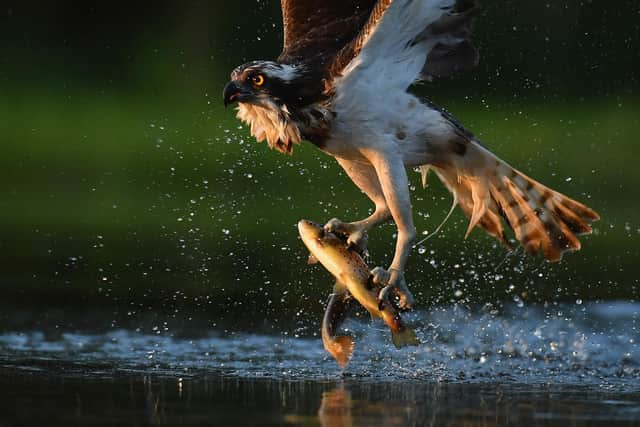In criminalising ecocide, Scotland can be at the forefront of a global movement to save nature – Monica Lennon
Scotland’s global contributions to philosophy, science and industry are legendary. Our contributions to the understanding of nature, however, are often overlooked. The renowned naturalist George Forrest, for example, born in my parliamentary region of Central Scotland, contributed to the classification of 1,200 species of plants, as well as a swathe of birds and mammals. Now, just over a century later, Scotland has an opportunity to step up in defence of those creatures and millions more, and truly be a world leader in the face of the biodiversity crisis.
The concept of ‘ecocide’ has been rapidly escalating up the global agenda in recent years. Ecocide is defined as “unlawful or wanton acts committed with knowledge that there is a substantial likelihood of severe and widespread or long-term damage to the environment being caused by those acts”. These are acts that threaten the existence of many of our treasured species.
Advertisement
Hide AdAdvertisement
Hide AdThis autumn, I will publish a public consultation on a law against ecocide in Scotland. By criminalising ecocide in Scotland, we would have the power to prosecute those who severely harm our environment. The purpose of introducing laws like these is twofold.
First, ecocide legislation acts as a deterrent. In its totality, existing environmental legislation has failed because it is difficult to enforce. By introducing robust legislation against ecocide, we can deter would-be polluters with the knowledge that they could be held legally accountable for the serious damage that they cause.
Secondly, criminalising ecocide sets a moral principle. When severe harm to nature is taken as seriously as severe harm to people, we can better understand our responsibilities to the living world on which we entirely depend. Putting ecocide on the statute books would decisively set out that our nation will not tolerate wanton environmental damage.
Criminalising ecocide in Scotland is only the first step. A law in Scotland will help to protect our unique native ecosystems and the landscapes that Scotland is famous for. But, we need similarly strong international legislation if we are to secure ourselves from climate and ecological catastrophe.
Ecocide law already has broad support in many regional and global contexts, including the European Parliament, the Parliamentary Assembly of the Council of Europe, the Organisation for Security & Cooperation in Europe, and the Inter-Parliamentary Union. Legislation has been proposed, is progressing or is already in force in many countries, including Belgium, Brazil, France, and Ukraine.


The logical endgame is the addition of a crime of ecocide to the Rome Statute of the International Criminal Court, meaning ecocide would join genocide, war crimes, crimes against humanity and crimes of aggression on the list of gravest crimes of concern to the international community. Whilst this is outside the power of the Scottish Parliament, passing an ecocide law in Scotland would lend moral and political support to the international campaign to criminalise it.
One can only imagine what ecological disasters could have been averted had ecocide been on that list when the statute was signed 25 years ago. As more and more countries begin to criminalise ecocide domestically, the case for that inclusion grows ever stronger. I have no doubt that we will see international recognition of this crime well within the next decade.
By criminalising ecocide here in Scotland, we would be among the pioneering early adopters of what increasingly looks to be a global legislative inevitability. In doing so we could help to catalyse similar enforceable protection worldwide, not only for the species George Forrest identified, but also for the most vital ecosystems that sustain our planetary home.
Monica Lennon is a Scottish Labour MSP for Central Scotland
